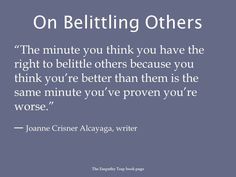All of us have been in the position of being required to learn new things in life. Hopefully life is a continual learning experience as we are never too old to grow. But when in a new situation, what makes an environment rich with the fertilizer that will help you grow and what makes an environment toxic thus making a person too sick to learn and grow? As I sometimes do, I draw on life’s experiences for my blog topics with the hope that my experience will help others either grow, or know what to avoid. I have just recently gone through the most toxic experience in my nursing career that made learning and growth totally impossible. I had a teacher who bullied as a means of communication, thus raising my stress level to excruciating heights, thus making concentration impossible. I was making simple mistakes that were a result of not being able to concentrate. This fueled my frustration which increased my stress level even more, thus creating a vicious cycle that made learning totally impossible. To be honest my biggest mistake was allowing myself to be bullied. 3 ½ months into my nightmare I stood up for myself and communicated that the unprofessional, rude, and condescending behavior was not acceptable. Of course this was not acceptable to the teacher and thus my nightmare has ended. So what does make a good or bad environment for promoting learning and growth?
I recently read a post on LinkedIn that spoke to this topic and it stressed that the environment most conducive to learning will have the teacher focusing on the strengths of the individual they are teaching/mentoring. So the approach of “you have never done this type of work, it really cannot be taught, and you will probably not be able to learn” is really not focusing on strength but setting the person up to fail. Another approach, instead, might be to say you have a multitude of clinical experience to draw from and with the guidelines that I will provide for you I am sure that you will be able to utilize that clinical experience to help you meet the objectives that are necessary for your new role here at _______.
I loved teaching nurses new to critical care. I was not seen as an “easy” preceptor, but many sought me out to learn from because, even though I was demanding I provided the environment and tools needed for the nurses to meet those demands. I always focused first on their accomplishments, then on their needs for improvement. We had weekly sessions to go over the goals and what progress was being made. I provided “my nurses” with tons of resources to be utilized to help them meet the goals of becoming the best critical care nurse possible. As a result the following is the kind of results that were attained: “Carol mentored me as a new graduate nurse and I attribute my success as a nurse to her. Carol is an excellent teacher and caregiver”. Am I suggesting that the teacher/mentor only focuses on positives? Absolutely not! The particular person that wrote the previous comment had to endure a talk from me on how to approach other nurses and doctors when they felt a mistake had been made. I always prefaced talks like this with nurses by saying this is going to be difficult to hear but it is in your best interest for me to address this now, rather than for it to affect you later on when you are on your own as a nurse. I do not mean this as a negative but something for you to use as a learning tool. Did she resent me for addressing the issue? No. But if I had approached it differently the results could have been much different. Did that particular nurses behavior, in that one area, change. Yes it did and she went on to become someone that others looked to for learning.
Examples of an environment that is toxic, making learning impossible: 
- Telling the person learning that they may never learn what is needed for the job.
- Providing no objectives for the person learning to know what is expected of their new job.
- Providing no ongoing evaluations for the person learning to know specifically how they are progressing.
- Simply correcting work, without input as to why corrections were made.
- Using condensing, rude, and unprofessional behavior when communicating with the person learning.
- Providing an environment that suggests using less than ethical measures to meet ones’ goal is acceptable.
Providing an environment with the fertilizer necessary for growth includes the following:
- Focusing on the strengths of the individual you are mentoring.
- Provide written objectives necessary to be successful.
- Provide learning materials that will help the person achieve these objectives.
- Schedule weekly sessions to evaluate, with the person learning, areas in which they have grown and areas that still need work. During these sessions communication, on the part of the mentor, should be professional, never using sarcasm when addressing issues that need improvement (I feel terrible thinking that this should even need to be something mentioned).
- Communication style should create a stress free environment that is conducive to learning.

Leave a Comment